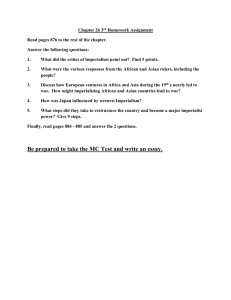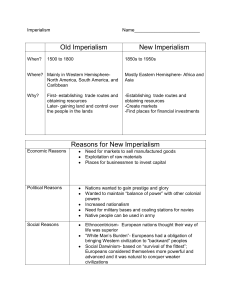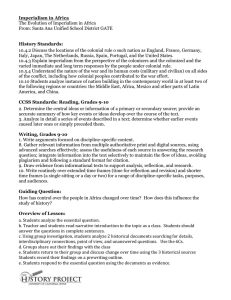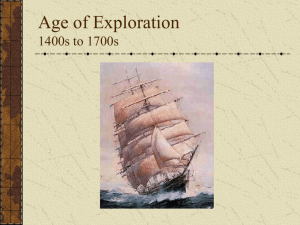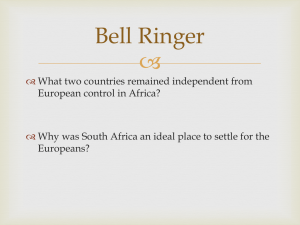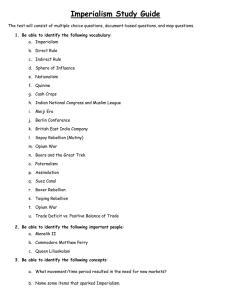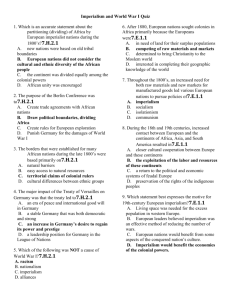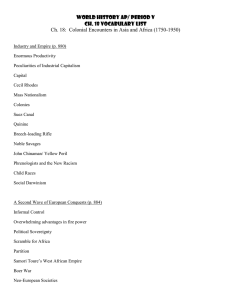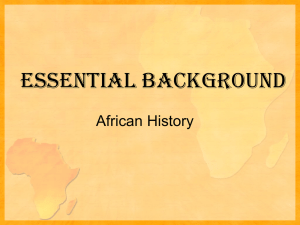Chapter 11-2 Imperialism
advertisement
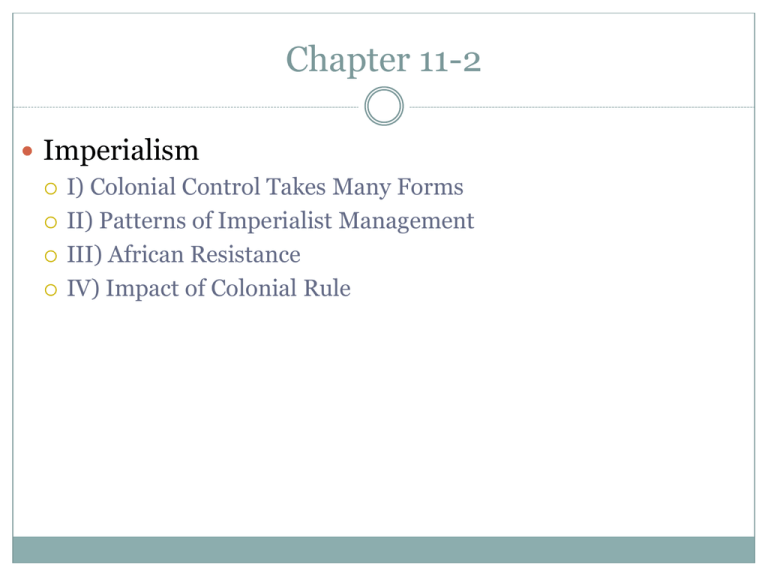
Chapter 11-2 Imperialism I) Colonial Control Takes Many Forms II) Patterns of Imperialist Management III) African Resistance IV) Impact of Colonial Rule I) Colonial Control Takes Many Forms Imperialism - about controlling the land, people and resources. Imperialism meant the Europeans demanded more influence on the economy and the lives of people, and wanted them to adopt European customs. Europeans used 4 methods to control the people Colony; a country or region governed internally by a foreign power Protectorate; a country or territory with its own internal government but under the control of an outside power. Sphere of Influence; an area in which an outside power claims exclusive investment or trading privileges. Economic Imperialism; independent but less developed nations controlled by private business interests rather than by other governments. II) Patterns of Imperialist Management Two methods of internal management of colonies appeared Indirect control relied on existing political rulers. In time the local population would learn to govern itself Britain and the United States used this model Direct Control felt the that local population was unable to handle the complexities of running a country, and Europeans needed to govern people in a fatherly way (paternalism) France supported a policy of assimilation, where the local population would be absorbed into French culture III) African Resistance Africans resisted colonial rule, despite a lack of adequate organization and weapons. Sometimes African societies tried to form alliances with the Europeans to defeat rivals, hoping the agreements would allow them to remain independent. In some cases Europeans did help, but turned on their African allies soon afterward. Menelik II led Ethiopia in the only successful African resistance to the European rule by playing the Italians, French and British against each other. In one of the greatest battles in African history, Menelik’s Ethiopian forces successfully defeated the Italians in the Battle of Adowa, maintaining their nation’s independence. IV) Impact of Colonial Rule • European colonial rule forever altered African lives. • Colonialism has had both positive and negative effects on African lands and peoples Positive Reduced local warfare Improved sanitation, hospitals, schools Literacy rates improved Economic growth, railroads, dams, telephone lines Negative Lost control of their lands Many died of new diseases such as small pox Many died resisting Europeans Famines resulted from change to cash crops instead of subsistence farming Breakdown of traditional culture
